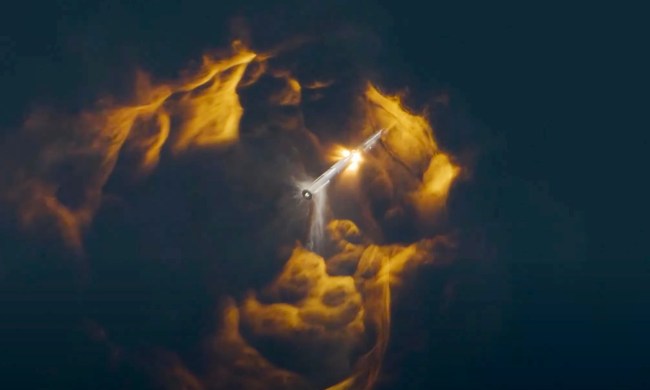The new space race is booming as commercial enterprises such as Elon Musk’s SpaceX and Jeff Bezos’s Blue Origin vie to provide efficient and affordable transport to orbit. Not to be outdone, India’s space agency accomplishes hundred-million-dollar missions for a fraction of the cost. Now, the country plans to launch 22 satellites on a single rocket next week.
Scheduled to launch from Sriharikota barrier islands on India’s southeast coast on June 20, the rocket will deliver American, Indian, Canadian, and German satellites into orbit, reports Bloomberg Technology. These 22 satellites will carry atmospheric observation and broadcasting technology, and add to the approximately 2,271 manmade satellites currently in Earth’s orbit. That number is set to grow drastically in the coming years, as missions become more affordable and digital and scientific needs increase. The 208 satellites launched in 2014 almost doubled the number from 2013.
India itself has about 35 satellites that help perform scientific studies and maintain steady cellphone connections on Earth. But that number needs to double, India’s space agency chairman A.S. Kiran Kumar told Bloomberg Technology. Kumar insisted his country needs to build and launch more satellites to compete with other programs. “We’re reaching a stage where every month we are having a launch,” he said.
The 22-satellite-packed rocket launch will may be a milestone for India. And although it’s a record for the agency, it’s not a record overall. In 2013, NASA launched 29 satellites on a single rocket. In 2014, Russia launched 33.
Still, India’s space program has been more intent on challenging private companies like SpaceX and Blue Origin with affordable missions and rocket reusability. India’s mission to Mars cost just $74 million, compared to the $671 million NASA spent on practically the same task. In May, India launched and landed their first reusable rocket in the Bay of Bengal. Though India’s mission last month was just a test with a full-scale model, it placed the nation among the few programs to achieve a successful return and recovery.


